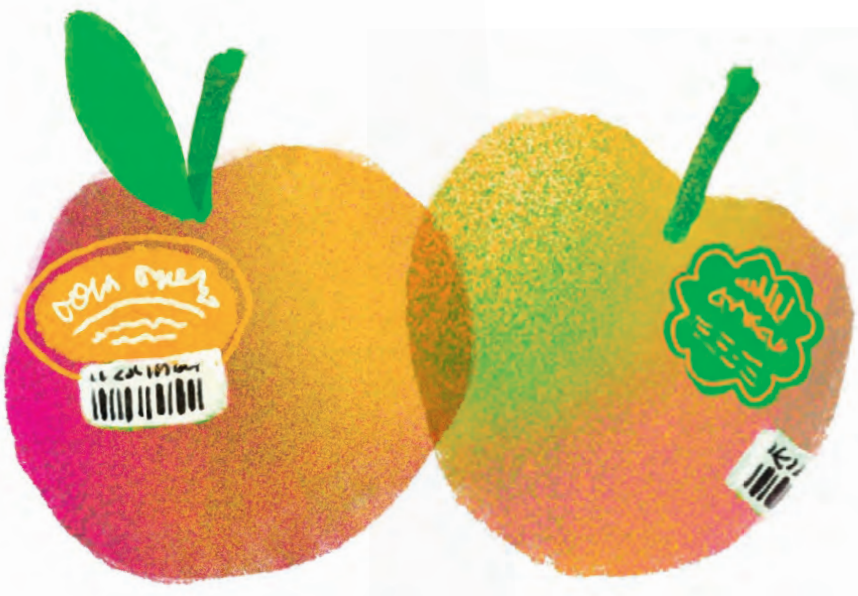EU GMO rules are under attack- and with them our food, our health and our environment
In a dangerous new move, the European Commission is trying to weaken the EU’s regulations on genetically modified organisms (GMOs). It plans to exclude certain GMOs from the existing regulations, so that agricultural corporations can market them without GMO authorisation, traceability or labelling.
Greens/EFA MEPs Martin Häusling (DE), Benoit Biteau (FR), Eleonora Evi (IT), Claude Gruffat (FR), Tilly Metz (LU), Michèle Rivasi (FR), Thomas Waitz (AT) and Sarah Wiener (AT) argue that this GMO deregulation plan is dangerous and debunk the Commission’s main arguments.
What is a GMO?
GMO” stands for “genetically modified organism”. A plant or animal becomes “genetically modified” (GM) when its genetic make-up is altered in a way that does not happen naturally. This can be done using a range of different techniques.
We believe that GMOs have no place in nature-friendly farming. Where GM crops are grown, the use of chemical pesticides has gone up, and the power of large agricultural corporations has increased – at the expense of farmers, consumers and nature. We want all GM products to be strictly regulated. They must be traceable and clearly labelled so that anyone who wants to can avoid them.
How does the European Commission plan to water down the EU’s GMO Regulations?
Big agricultural corporations, like Bayer/Monsanto and Corteva (formerly, DowDuPont), have long lobbied for the EU to apply its GMO regulations only to genetically modified plants that have had foreign DNA – i.e. DNA from an unrelated species – added to their genetic make-up. They claim that plants made with new gene editing techniques like CRISPR should not be classified as genetically modified (GM).
Earlier this year, the European Commission publicly backed their view and announced that it would create separate legislation for such GM plants. Avoiding the unpopular “GM” word, the Commission calls them “plants produced by certain new genomic techniques”.
The Commission’s plan goes straight against the European Court of Justice. The EU’s highest court has warned that an exclusion of organisms engineered with new GM techniques from the scope of the EU’s GMO regulations would defeat the purpose of the regulations. It would jeopardise the protection of people’s health and threaten the environment.
How will weakening our GMO rules benefit big agricultural business?
The European Commission’s plan is a dream come true for Bayer/Monsanto.
If the EU drops the requirement for GMO traceability and labelling, farmers, food producers and consumers would have no way to reject these GM products and opt for GM-free choices. It would threaten the future of organic farming, which must be GM-free by its own rulebook.
Moreover, armed with strong intellectual property rights and patents, big multinationals would be able to use these untraceable and unlabelled GM seeds to further entrench their control on our food production. The more patented GM seeds there are on the market, the harder it becomes for breeders to avoid contamination with GM seeds and to access unpatented non-GM seeds.
This may well be the real motivation behind the corporations’ push for deregulation: they want to push out their competitors and take full control of the market.

Misleading arguments: why does the European Commission want certain GMOs to be deregulated?
Drawing from the rhetoric of the big agricultural corporations, the European Commission is using three main arguments to defend their proposed changes to our GMO rules:
- that there are supposed “sustainability benefits”
- that these new GMOs are genetically similar to non-GM plants, and
- that it is too difficult to apply the current GMO laws.

Here is why all three of these arguments are baseless:
(1) New GMOs are not sustainable and will not lead to less pesticide use
The European Commission claims that plants engineered with new GM techniques can “contribute to a more sustainable food system”. Supposedly, plants will be genetically modified to resist diseases, for example, which would allow farmers to reduce the use of chemical pesticides.
What the Commission is ignoring is that new GM technology is already in the hands of a few multinational companies, like Bayer/Monsanto and Corteva. By the end of 2020, these two companies alone had filed around 120 international patent applications for seed products engineered with gene editing techniques.
Big agricultural corporations all produce both seeds and chemical pesticides. Why would they use GM technology to reduce farmers’ dependency on chemicals? In fact, they have made the same promise before – and never delivered.
Today, the vast majority of genetically modified crops are engineered to withstand spraying with toxic herbicides, which are sold in a package together with these GM seeds. The first ever gene edited GM crop to hit the market – Cibus’ SU Canola, grown in the US since 2014 – is one of these herbicide-tolerant plants. And, many plants engineered with new GM techniques that are in the “pre-commercial stage” are also tolerant to herbicides, according to the Commission’s own research.
Genetically modified crops that resist diseases may be under research in some public laboratories. But, there are no signs that they will work in the field and that they will be effectively commercialised – not in Europe, and not in countries with more permissive GM regulatory regimes.
(2) Creating GMOs is not the same as evolution. These genetic changes do not occur in nature.
The European Commission argues that these genetically modified plants are too similar to non-GM plants to justify their regulation under GMO laws.
However, even if no ‘foreign’ genetic material remains in the GM organism, the laboratory processes used in GM are bound to result in changes that do not occur in nature. Developers use new GM technology to achieve complex genetic alterations that would not be possible without genetic engineering. What’s more, they are far from controlling all the changes resulting from the engineering process. Both the intended and unintended changes to the genetic make-up of plants can lead to risks affecting ecosystems and food production.
In fact, scientists have argued that the risks linked to new GM techniques may well be similar, or even greater, than existing GM methods.
(3) Enforcing the EU’s GMO regulations requires a commitment to global cooperation, not global corporations
The European Commission believes the EU’s existing GMO regulations are too difficult to enforce because we cannot track down all the genetically modified products that may enter the EU illegally (i.e. without GMO authorisation). This is indeed a problem that needs to be solved, and the only way to solve it is through research efforts and global cooperation.
So far, the Commission has done neither. EU scientists have engaged in “theoretical considerations” about how to detect, identify and quantify gene-edited products, without any experimental evidence. Recommendations by scientists and German authorities to establish an international database of new GM products are yet to be followed.
The EU cannot bow down before the secrecy of seed producers who are evidently able to track their own patented products but don’t want public authorities to be able to do the same.

Let’s get down to real progress. What future does the Greens/EFA Group want for our global food production?
As Greens/EFA MEPs, we cannot accept any weakening of the EU’s food and environmental standards. We need to demand more, not less, from big agricultural corporations, and cannot exempt them from regulatory oversight. It is the EU’s responsibility to stand up for our climate, for our food production, for public health and for nature.
We maintain that GM plants have no place in sustainable farming. Only farmer-based agro-ecology can provide abundant harvests that are resilient in the face of climate change and do not depend on synthetic pesticides.
Let’s not waste any time discussing false solutions promoted by agribusinesses. Instead of changing the EU GMO regulations to circumvent a landmark EU court ruling, let’s get down to the real advances needed to expand ecological farming practices that work with, not against nature.
Authors:
Greens/EFA MEPs
Martin Häusling (DE),
Benoit Biteau (FR),
Eleonora Evi (IT),
Claude Gruffat (FR),
Tilly Metz (LU),
Michèle Rivasi (FR),
Thomas Waitz (AT)
Sarah Wiener (AT)
More information:
FRANZISKA ACHTERBERG: Biodiversity campaigner
franziska.achterberg@ep.europa.eu